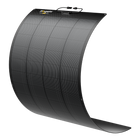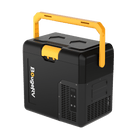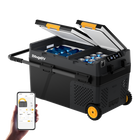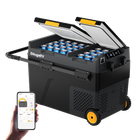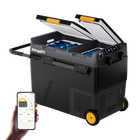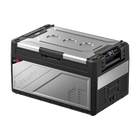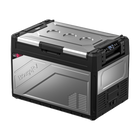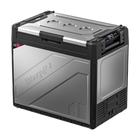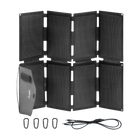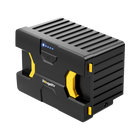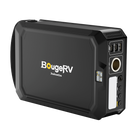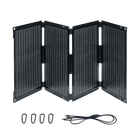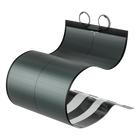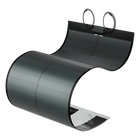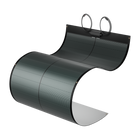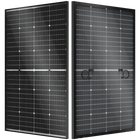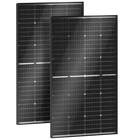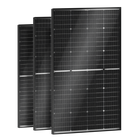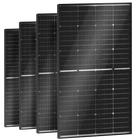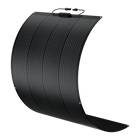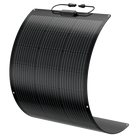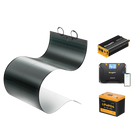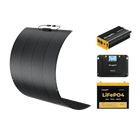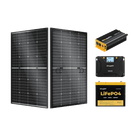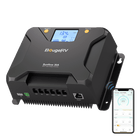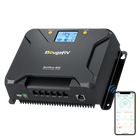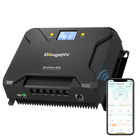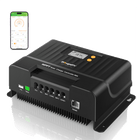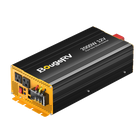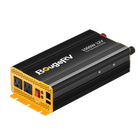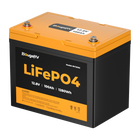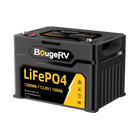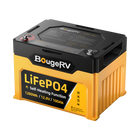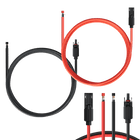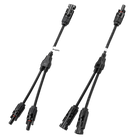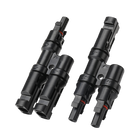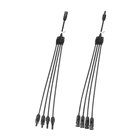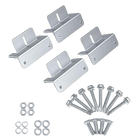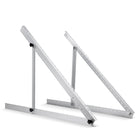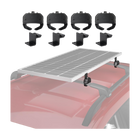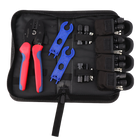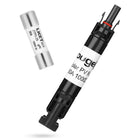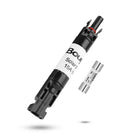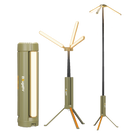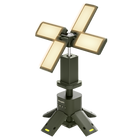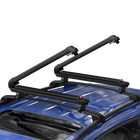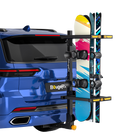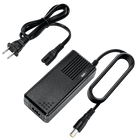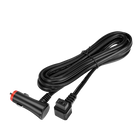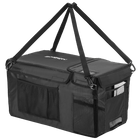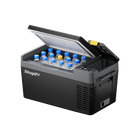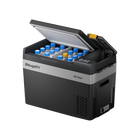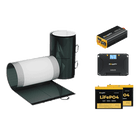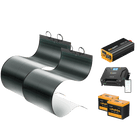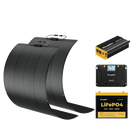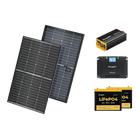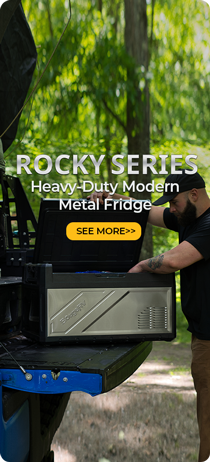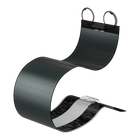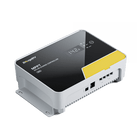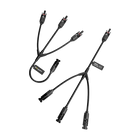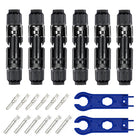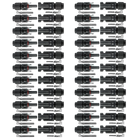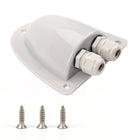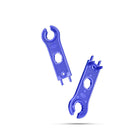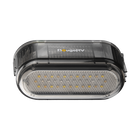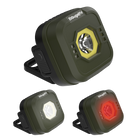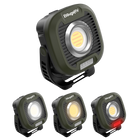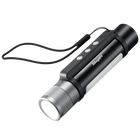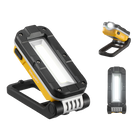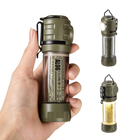Series vs. Parallel connection of solar panels, how do you choose?

When you choose the solar system to generate electricity, you have many solar panels in your hand. Suppose you want these panels to generate electricity efficiently for your house, RV, or other electrical equipment. How do you choose the connection method? You should know that different connection methods will bring different power generation effects.
However, when multiple solar panels are connected, you have two choices: series connection and parallel connection. Deciding which way to join depends on the conditions and environment under which you use the solar system. Next, let's see which method is most suitable for you.
Series connection of solar panels
1. What is the series connection of solar panels?
A significant point: when solar panels are connected in series, their voltages are added together, and the current remains constant.
Here is a simple example:
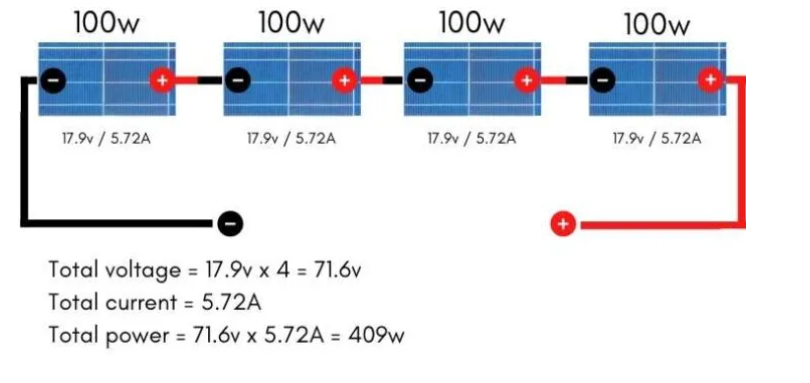
2. What conditions are solar panels connected in series?
In addition, the series connection is also a good choice if you want a low-current system. Because the solar panels are connected in series, the current is constant. The lower current allows you to use smaller wires, which are cheaper and more accessible.
Finally, when you connect the solar panels in series, an additional important tool is the MPPT charging controller. It is mainly used to adjust the voltage and current of the solar panel, adjust the current to a suitable size, and prevent sacrificing the power of the solar charging panel.
Parallel connection of solar panels
1. What is the parallel connection of solar panels?
A significant point: when solar panels are connected in series, their current is added together, and the voltage remains unchanged.
Here is a simple example:
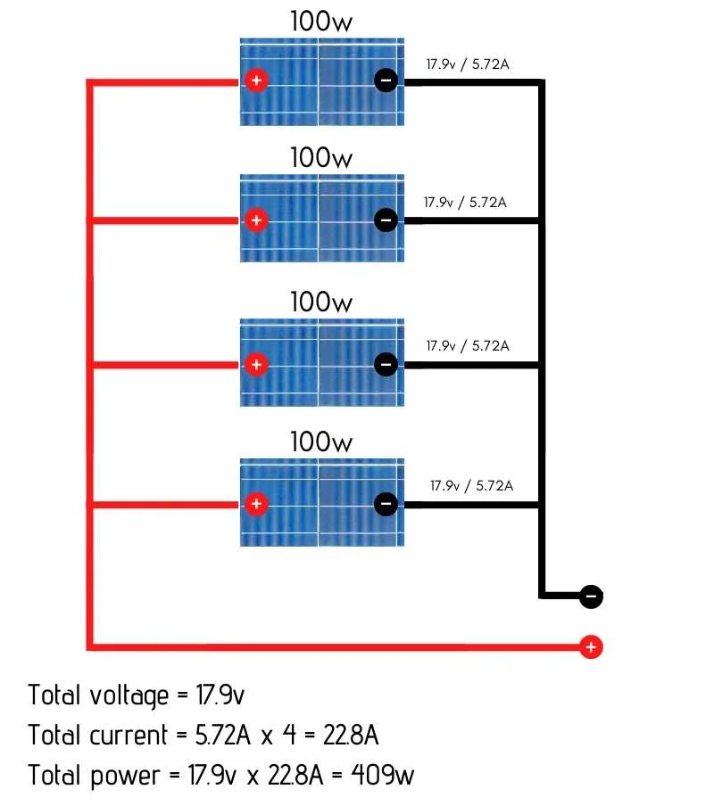
2. What conditions are solar panels connected in parallel?
Suppose you are in an environment where the sunlight is occasionally blocked, and the solar panels often work under mixed light. In that case, the parallel connection mode is your best choice. Because similar solar panels work independently, the remaining solar panels will continue to generate electricity as expected when the shadow covers one or two meetings.
Like the series connection of solar panels, the parallel connection of solar panels also has an essential tool, the PWM controller. It can control the low-voltage system in a low-cost way so that the output voltage of your solar charging panel matches the standard battery charging voltage.
Series - Parallel connection of solar panels
1. What is the series and parallel connection of solar panels?
Generally, the solar panel array will be affected by many factors, especially the charging controller used. The design of the charging controller only accepts a certain amount of current intensity and voltage.
For larger solar energy systems, the series-parallel connection design must be adopted at the same time to maximize the power of the solar energy system. We must keep the current and voltage within the appropriate range for this creative connection.
Similarly, take a simple example:
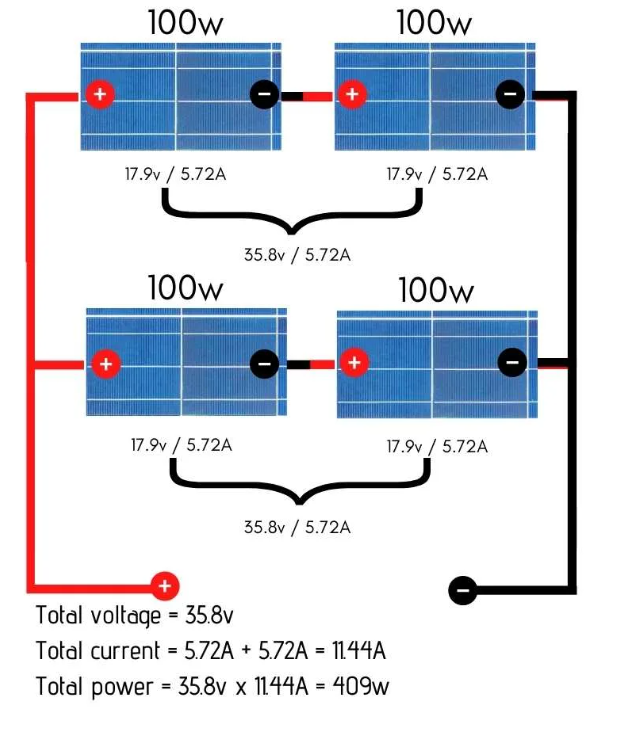
Understanding the connection mode and fundamental principle of solar panels in series and parallel is crucial for improving the efficiency of solar power generation.
- In the above figure, 4 x 100w panels, each with a rated voltage of 17.9V and a current of 5.72A
- The first pair of panels in the series can produce 35.8 volts and 5.72 amps.
- The second pair of panels in the series can produce 35.8 volts and 5.72 amps.
- The two lamp strings in parallel can produce a voltage of 35.8 volts and a current of 11.44 amperes - 409 watts in total.
When the solar panels in the array are identical, no matter how they are wired (at least mathematically), the power output is the same, but the current and voltage are different.
2. What conditions are solar panels connected in series-parallel?
As mentioned above, when your solar system is extensive, it is not most effective to use solar panels only by using a series or parallel connection. In reality, it is a standard method to connect multiple solar cells in series and parallel, which can make the current and voltage critical balance, thus giving full play to the best performance of the solar system.
At this time, the series connection will increase the voltage, allowing you to use smaller wires. Your MPPT charging controller will be more effective and valuable. The parallel connection will increase the current, requiring larger wires, which can prevent the power generation efficiency of the solar panel from being affected due to insufficient light intensity.
In a word, no matter how you connect multiple solar panels, the simple considerations can be summarized as voltage, current, and the size of the solar system. Suppose you encounter problems during the connection process. In that case, you must seek professional help, and the best advice, and BougeRV's after-sales team will continue to help.
What is the difference between series and parallel solar panels?
Let's imagine a scene: the Christmas lights in the Christmas tree suddenly have a bulb burned out for some reason, and the whole string of lights will not light up at this time. This is because these lights are connected in series. You must find the defective bulb and replace it.
However, today's Christmas lights are all connected in parallel, which means that even if one is broken, other bulbs can work as usual. This is the parallel connection method.
If one panel in a series fails, the entire circuit will fail. In contrast, the defective solar panels in parallel will not affect the output of other solar panels.
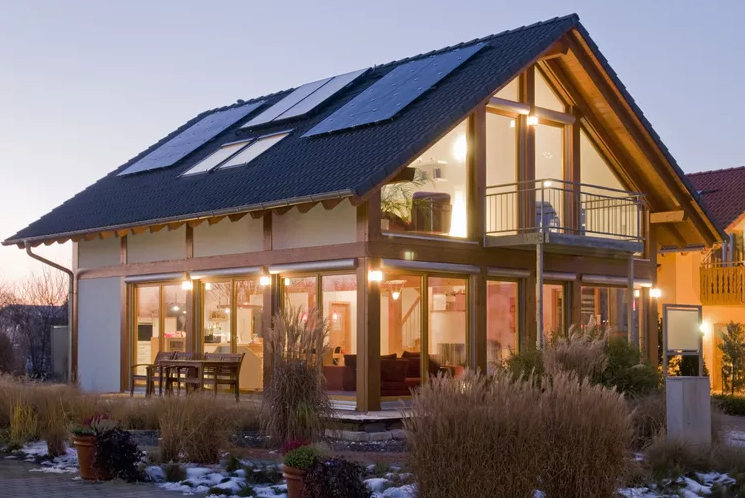
Another essential thing to remember is that connecting solar panels in series will increase the voltage. In contrast, the parallel connection will increase the current. When designing a solar system, professionals will consider the voltage, current, system size, and the inverter most suitable for you.
In most cases, professional solar installers will design a system shared in series and parallel, enabling the system to generate power at the most appropriate voltage and current so as not to overload the inverter so that your solar charging panel can output power at the best state.
Should your solar panels be connected in series or in parallel?
The choice of series connection or parallel connection for your solar charging panel mainly depends on the demand of your electrical equipment and the surrounding environment. For general ships and RVs, the parallel connection of solar charging panels can provide more efficient wiring and public voltage.
However, for large applications with a power of more than 3000w, it may be better to use the series connection mode to obtain higher voltage. Before choosing, you should understand the operating conditions and working principles of various wiring devices to ensure that you determine the most appropriate way and confidently install the solar charging panel.
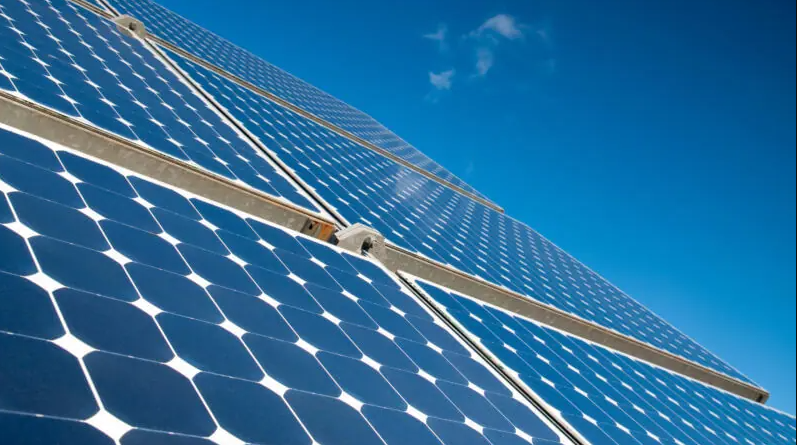
If your solar charging panel is not covered by shadows most of the time, connecting multiple solar panels in series will be your first choice. This will make your solar charging panel system more efficient and perform better in the daytime and on cloudy days.
In a word, there is no solution for everyone. There should be a corresponding solution for specific problems and conditions. If you are unsure how many shadows your panel will receive, consider using the parallel method. Of course, you can also communicate with the after-sales team of bougeRV, and we will do our best to help you.
Suggestions for efficient use of solar charging panels
1. Pay attention to any object on the roof that may cast shadows on the panel, such as an antenna, satellite, vent, etc.
2. In the whole solar system, use solar panels of the exact specification as much as possible.
3. Using a hybrid panel, you can connect them in series through appropriate wires to configure the maximum current.
4. Remove the damaged panels in the solar system to avoid affecting the power output of other boards.
5. Make the specifications of the solar panels as close as possible. Don't put panels with significant differences in specifications together for use. For example, put 50w 3A 18v and 200w 9A 21v together.
6. When the RV uses the solar energy system, it usually adopts the series connection method.
7. Avoid parking your RV in an utterly fantastic place to maximize the solar system's efficiency.
8. Regularly clean the solar panels. We will also publish a detailed article on how to clean solar panels in the future, and continue to pay attention to us: https://www.bougerv.com/. We hope our content and products can help you.






